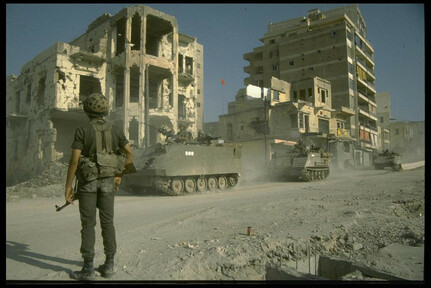On preparing for the next war – Amos Harel in Haaretz:
‘The exercises in May forecast that as soon as the first week of fighting against Hezbollah, there would hundreds of Israeli fatalities, many of them civilians, and considerable material damage in the north and center of the country. Lebanese deaths will be several thousand, half of them civilians. These are large numbers that the Israeli public isn’t used to, and has a hard time even imagining. The reports citing these scenarios are designed to prepare it for such an eventuality.
In a speech a year and a half ago at an Institute for National Security Studies conference, Kochavi offered his thoughts concerning the next Lebanon war. In his eyes, the intensity of Hezbollah rocket fire would have to be met by an even more powerful response from the IDF and provide legitimacy – domestically and perhaps internationally – for far-reaching moves. But since then, a war has broken out in Ukraine that has taught us that the world’s tolerance for bombing civilian populations is very limited. Despite the clear differences between Israel and Russia, we can’t be certain that Israeli propaganda would succeed in clarifying these.
As noted, the politicians have doubts. This has to do with the calculation of risk and reward. The military will need to convince the cabinet that a land operation is crucial and provide value even after taking into account the significant losses that it will entail (and the ever-present risk that things will get more complicated than planned). In the background lurks the fact that the Israeli public’s tolerance for battlefield losses has shrunk considerably. The strong reaction that the death of a single soldier elicits, even when it happens during a military operation, shows how that the chief of staff’s and cabinet’s room for maneuver has become more constrained.
That is especially the case in the current political environment, in which the combative opposition exploits every security incident to undermine the stability of the government and the public’s trust in it. However, there are those who assert that Hezbollah’s assault on Israel’s home front will be so destructive that any reservations the public has about casualties will evaporate.’
Read the article here.
The next Lebanon war will be bloody, bloodier than last war in 2006 but neither the international community nor the Israel public will have much patience for a long and bloody war. As has been said before, they'll have one week, two weeks at best.
The dire situation in Lebanon, the international public is not interested in this until the disaster begins and even then, the attention will fade away quickly, might prevent Hezbollah from taking risks or it might force them take extremely big risks. Well, if the despair is big enough the biggest risks become peanuts.
The one thing we know is that armies are always preparing for a war that doesn’t come and if it comes it has nothing to do with what the army thought it would be.
